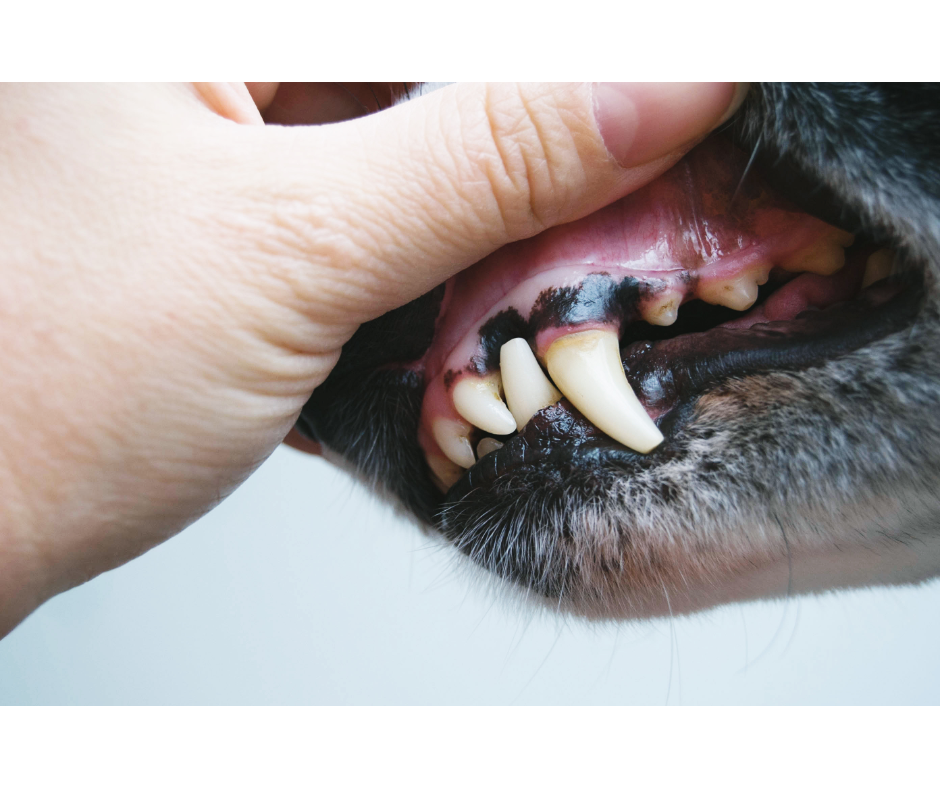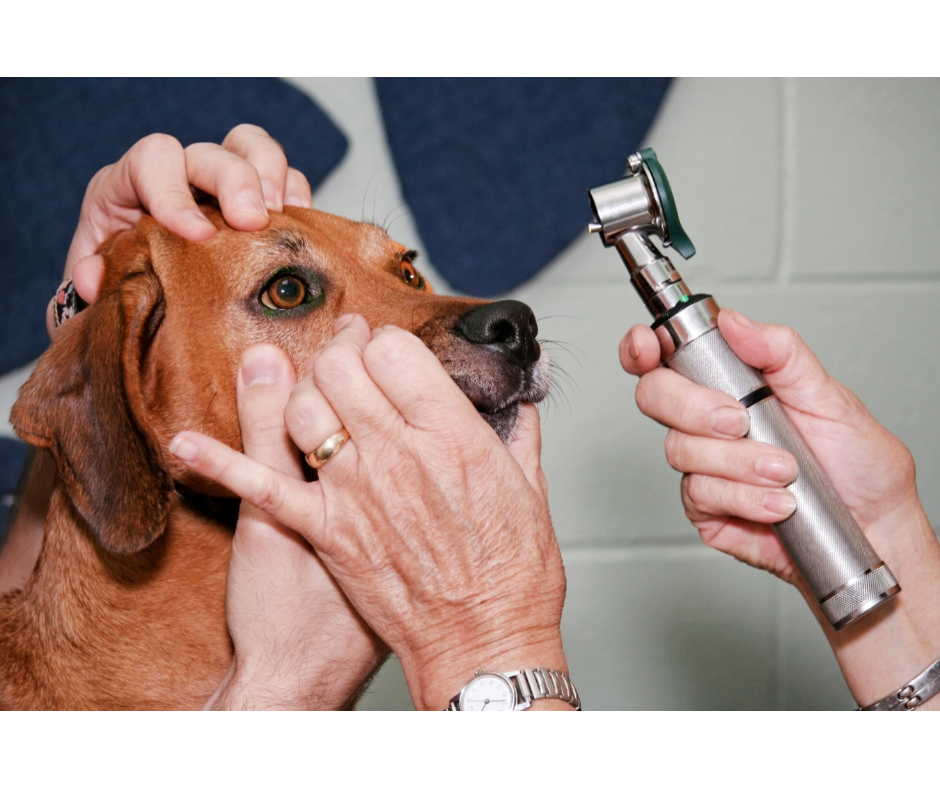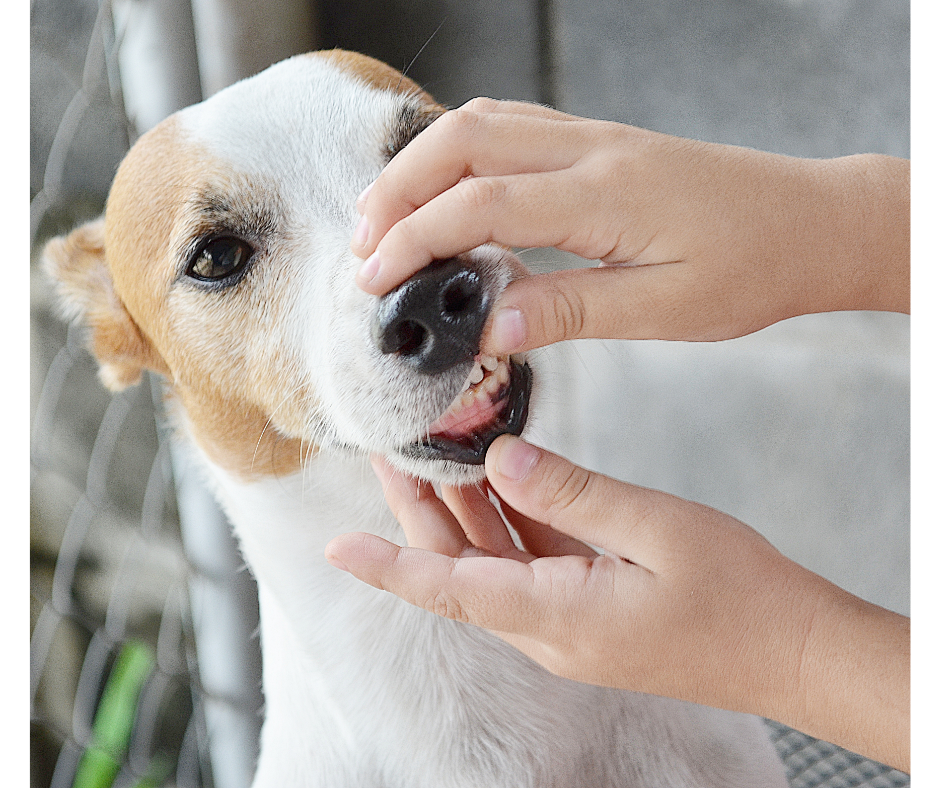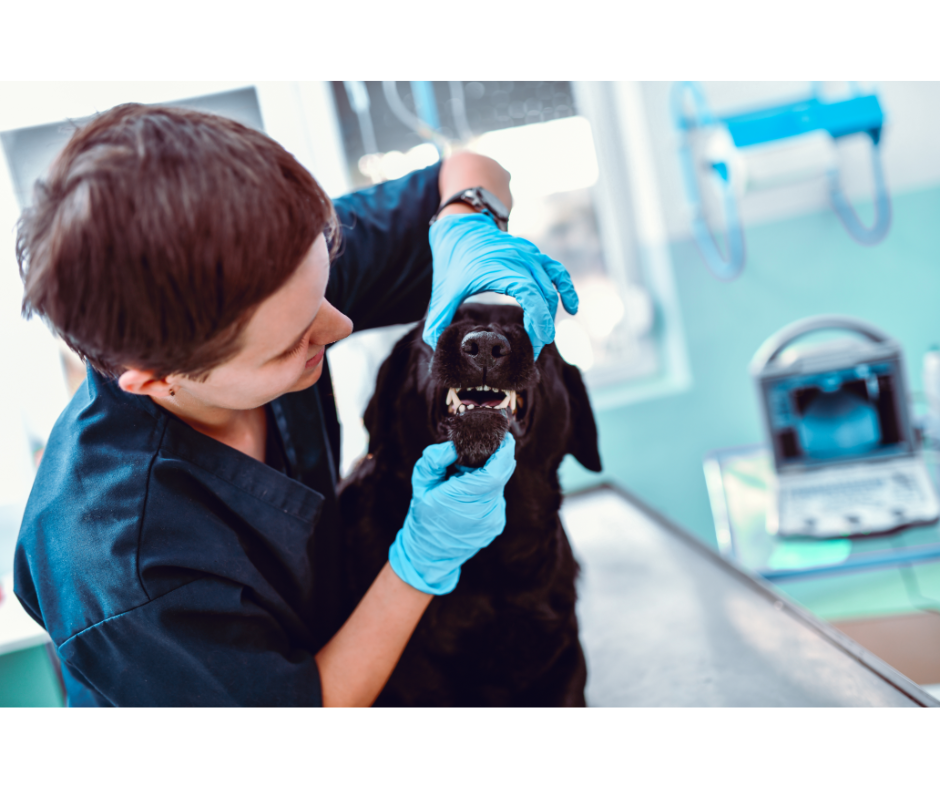Let’s talk about the importance of dental care for dogs. Taking care of your furry friend’s teeth is essential to their overall health and well-being. Just like humans, dogs can develop dental issues such as plaque buildup, gum disease, and tooth decay. Ignoring these problems can lead to discomfort, pain, and potential infections. Regular dental care, including brushing their teeth and providing dental treats, can help prevent these issues and keep your pup’s breath fresh. So, don’t forget to give your four-legged companion the smile they deserve!

Preventive Dental Care
Dental care is an essential part of ensuring your dog’s overall health and well-being. Just as humans need regular dental care, so do our canine companions. Preventive dental care measures can help maintain healthy teeth and gums, preventing various dental problems that can cause pain and discomfort for your furry friend. By implementing a few simple strategies, you can significantly improve your dog’s oral health and prevent potential issues from arising in the first place.
Regular Brushing
Just like you brush your teeth every day, it is important to brush your dog’s teeth regularly as well. Regular brushing helps to remove plaque and tartar build-up, which can lead to gum disease and tooth decay. It is recommended to brush your dog’s teeth daily, using a toothbrush and toothpaste specifically designed for dogs. The toothbrush should have soft bristles to avoid causing any damage to your dog’s gums, and the toothpaste should be formulated for dogs, as human toothpaste can be toxic if swallowed.
Dental Chews and Toys
Apart from regular brushing, dental chews and toys can also play a significant role in maintaining your dog’s dental health. Chewing on appropriate toys and treats can help remove plaque and keep your dog’s teeth clean. Look for chew toys that are designed to promote dental health, such as those with ridges and grooves that help clean the teeth as your dog chews. Additionally, dental chews that contain enzymes or anti-plaque agents can provide an extra boost to your dog’s oral hygiene routine.
Professional Dental Cleanings
In addition to regular at-home care, professional dental cleanings by a veterinarian are crucial for your dog’s oral health. These cleanings involve a thorough examination of your dog’s mouth, scaling to remove tartar and plaque, and polishing to smooth the teeth. Unlike humans, dogs require anesthesia for dental cleanings to ensure their safety and effectiveness. Professional cleanings should be performed annually or as recommended by your veterinarian to maintain optimal dental health for your dog.
Health Benefits
Besides maintaining good oral hygiene, preventive dental care for your dog offers several health benefits that contribute to their overall well-being.
Prevention of Gum Disease
One of the primary health benefits of dental care is the prevention of gum disease. Gum disease, also known as periodontal disease, is a common condition in dogs that can lead to tooth loss, pain, and discomfort. Regular brushing, dental chews, and professional cleanings help eliminate bacteria and plaque that cause gum disease, keeping your dog’s gums healthy and free from infection.
Prevention of Tooth Loss
By taking proper care of your dog’s teeth and gums, you can significantly reduce the risk of tooth loss. Neglected dental health can lead to tooth decay, gum disease, and ultimately, tooth loss. This can impact your dog’s ability to eat properly, causing pain and discomfort. Preventive dental care measures, such as regular brushing and professional cleanings, help maintain healthy teeth, ensuring that your dog can chew and eat comfortably.
Prevention of Bad Breath
Bad breath in dogs can be a sign of poor dental hygiene or an underlying dental problem. Regular preventive dental care can help freshen your dog’s breath by keeping their teeth and gums clean and free from bacteria and plaque. By promoting good oral hygiene, you can ensure that your dog’s breath stays fresh and pleasant.
Overall Well-being
In addition to the health benefits, proper dental care contributes to your dog’s overall well-being, ensuring they live a happy and comfortable life.
Pain Relief
Untreated dental problems can cause significant pain and discomfort for your dog. Tooth decay, gum disease, and oral infections can lead to soreness, swelling, and even abscesses. By practicing preventive dental care measures, you can help alleviate these issues and provide pain relief for your furry friend. Regular brushing, dental chews, and professional cleanings can keep your dog’s mouth healthy and free from pain.
Improved Appetite and Nutrition
Dogs with dental problems often experience difficulty eating, which can result in malnutrition and weight loss. By taking care of your dog’s teeth and gums, you ensure that they can chew their food properly, improving their appetite and allowing for proper nutrition. Preventing dental issues through regular dental care can help maintain your dog’s overall health and well-being.
Enhanced Quality of Life
Good oral health directly contributes to your dog’s quality of life. Dogs with healthy teeth and gums are more likely to be comfortable, have a better appetite, and enjoy a higher quality of life overall. By investing time and effort into preventive dental care, you are ensuring that your furry friend can lead a happy and pain-free life.
Early Detection of Dental Problems
Regular dental care also allows for the early detection of dental problems, enabling prompt treatment and potentially preventing more severe issues from developing.
Identification of Tartar and Plaque Build-up
Regular brushing and professional cleanings help identify and remove tartar and plaque build-up on your dog’s teeth. Tartar and plaque can lead to gum disease, tooth decay, and other dental issues. Early detection and removal of these substances can prevent further damage to your dog’s teeth and gums.
Detection of Oral Tumors
During routine dental examinations, veterinarians check for signs of oral tumors or abnormal growths. Early detection of these tumors is crucial for treatment and can improve your dog’s chances of a positive outcome. Regular dental care appointments give veterinarians the opportunity to thoroughly examine your dog’s mouth and identify any suspicious lumps or lesions.
Diagnosis of Periodontal Disease
Periodontal disease can progress silently and cause irreversible damage to your dog’s mouth if left untreated. Regular dental check-ups can help diagnose periodontal disease in its early stages, allowing for effective treatment. By addressing periodontal disease promptly, you can prevent further dental issues and improve your dog’s oral health.

Prevention of Systemic Diseases
Maintaining proper dental care for your dog can also help prevent certain systemic diseases that can have serious consequences for their overall health.
Reduced Risk of Endocarditis
Endocarditis is an infection of the heart’s lining and valves and can occur when bacteria from the mouth enters the bloodstream. By preventing gum disease and oral infections, you reduce the risk of bacteria entering the bloodstream and potentially causing endocarditis. Regular dental care helps keep your dog’s mouth healthy and minimizes the risk of this serious condition.
Prevention of Kidney and Liver Disease
Studies have shown a link between poor dental health and diseases such as kidney and liver disease in dogs. Bacteria and inflammation in the mouth can spread to other parts of the body, including the kidneys and liver, leading to serious health problems. Proper dental care can help reduce the risk of these systemic diseases, promoting your dog’s overall health.
Prevention of Respiratory Infections
Periodontal disease and poor oral hygiene can increase the risk of respiratory infections in dogs. Bacteria from the mouth can be inhaled into the respiratory system, leading to infections such as pneumonia. By maintaining good dental care practices, you can minimize the risk of respiratory infections and support your dog’s respiratory health.
Dental Health and Behavior
Proper dental care for your dog can also have positive effects on their behavior and socialization.
Prevention of Chewing and Behavioral Problems
Dogs with dental issues often resort to chewing on inappropriate objects or exhibit other behavioral problems. They may chew on furniture, shoes, or other items to relieve their discomfort or anxiety. By prioritizing preventive dental care, you can help prevent these behavioral issues by ensuring your dog’s teeth and gums are healthy and free from pain.
Prevention of Aggression
Untreated dental problems can cause significant pain and discomfort, which may manifest as aggression in some dogs. When in pain, dogs may become irritable and exhibit aggressive behavior. By addressing dental issues before they escalate, you can help prevent aggression and maintain a harmonious relationship with your furry friend.
Enhanced Socialization
A healthy mouth contributes to your dog’s overall well-being, allowing them to interact comfortably with other dogs and people. Dogs with dental problems may be hesitant to engage in social activities due to pain or discomfort. By ensuring your dog’s teeth and gums are healthy, you promote their socialization skills and enhance their overall happiness.

Cost Savings
Preventive dental care for your dog can also save you money in the long run by preventing costly dental procedures and complications.
Prevention of Expensive Dental Procedures
Neglected dental health can lead to the need for extensive dental procedures such as tooth extractions, root canals, or periodontal surgery. These procedures can be costly and may require multiple visits to the veterinarian. By investing in regular dental care, you can prevent the need for these expensive procedures, saving you money and ensuring your dog’s oral health.
Avoidance of Complications Requiring Surgery
Untreated dental problems can lead to severe complications that may require surgical intervention. For example, an abscessed tooth may require surgical extraction, which can be more complicated and expensive compared to a routine tooth extraction. By practicing preventive dental care, you reduce the risk of costly complications and invasive surgeries.
Reduced Veterinary Bills
Regular dental care can help reduce the need for frequent veterinary visits and treatments related to dental issues. By addressing dental problems early on, you can minimize the risk of additional health complications that may require medical intervention. This can result in fewer veterinary bills and a healthier, happier pet.
Nutritional Considerations
Proper dental care for your dog also has nutritional benefits, ensuring they can derive maximum nutrition from their diet.
Better Absorption of Nutrients
Healthy teeth and gums allow your dog to chew their food properly, breaking it down into smaller particles that are easier to digest. By maintaining good dental health, you ensure that your dog can absorb nutrients more efficiently, promoting their overall health and vitality.
Improved Digestion
Chewing is the first step in the digestive process for dogs. By promoting proper chewing through regular dental care, you support your dog’s digestive system. Well-chewed food is easier to digest, reducing the risk of digestive issues such as indigestion or constipation.
Prevention of Malnutrition
Dogs with dental problems may struggle to eat properly, leading to malnutrition. Malnutrition can have serious consequences for your dog’s health, affecting their immune system, energy levels, and overall well-being. By prioritizing preventive dental care, you ensure that your dog can eat a balanced diet and receive the necessary nutrients for optimal health.
Oral Hygiene Tips
Implementing proper oral hygiene practices for your dog is essential in maintaining their dental health. Follow these tips to ensure effective dental care:
Choosing the Right Toothbrush and Toothpaste
Select a toothbrush specifically designed for dogs, with soft bristles that are gentle on their gums. Use toothpaste formulated for dogs, as human toothpaste can be harmful if swallowed. Introducing your dog to toothbrushing gradually can help them become comfortable with the process.
Proper Brushing Technique
Hold the toothbrush at a 45-degree angle to the teeth and gently brush in a circular motion. Focus on the outer surface of the teeth, as this is where plaque and tartar tend to accumulate the most. Aim to brush your dog’s teeth for a full two minutes, ensuring you cover all surfaces.
Introducing Dental Chews and Toys
Choose dental chews and toys that are appropriate for your dog’s size and chewing habits. Look for products that promote dental health, such as those with ridges and grooves that help clean the teeth as your dog chews. Supervise your dog while they chew to ensure they don’t break off or swallow any large pieces.
Professional Dental Care
Regular veterinary dental check-ups and professional cleanings are essential for your dog’s dental health.
Frequency of Veterinary Dental Check-ups
Schedule regular dental check-ups with your veterinarian to monitor your dog’s oral health. The frequency of these check-ups may vary depending on your dog’s age, breed, and overall dental health. Your veterinarian can provide guidance on how often your dog should receive dental examinations.
Importance of Anesthesia
Professional dental cleanings for dogs require anesthesia to ensure a thorough examination and cleaning. Anesthesia allows the veterinarian to perform a detailed examination, including dental X-rays, and provides a safe environment for your dog during the cleaning process. Your veterinarian will determine the appropriate anesthesia protocol for your dog based on their health status and specific needs.
Professional Cleaning Process
During a professional dental cleaning, the veterinarian will thoroughly examine your dog’s mouth, teeth, and gums. They will remove plaque and tartar using specialized tools and may perform dental scaling and polishing. In some cases, extractions or other dental procedures may be necessary. The cleaning process may take some time, and your dog will be closely monitored by veterinary staff throughout the procedure.
In conclusion, proper dental care is crucial for your dog’s health and well-being. Implementing preventive dental care measures, such as regular brushing, dental chews, and professional cleanings, can help prevent gum disease, tooth loss, bad breath, and various systemic diseases. Regular dental care also facilitates early detection of dental problems and can have behavioral and nutritional benefits for your dog. By prioritizing your dog’s dental health, you promote their overall quality of life, save on potential veterinary expenses, and ensure they can enjoy a pain-free and healthy smile for years to come.

